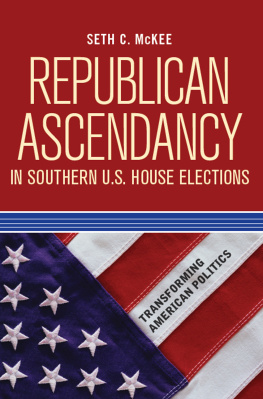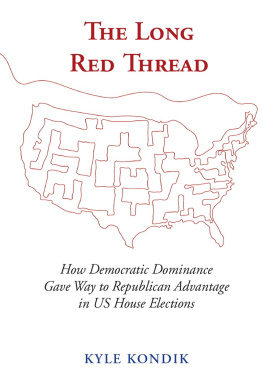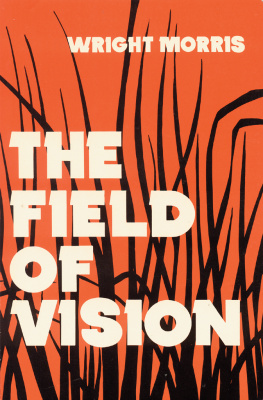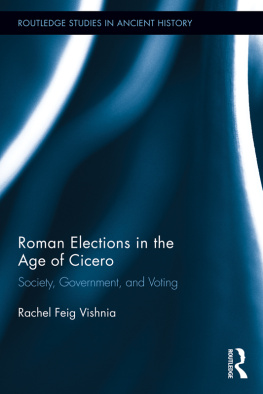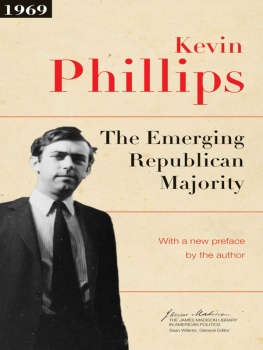Republican Ascendancy in Southern U.S. House Elections
TRANSFORMING AMERICAN POLITICS
Lawrence C. Dodd, Series Editor
Dramatic changes in political institutions and behavior over the past three decades have underscored the dynamic nature of American politics, confronting political scientists with a new and pressing intellectual agenda. The pioneering work of early postwar scholars, while laying a firm empirical foundation for contemporary scholarship, failed to consider how American politics might change or to recognize the forces that would make fundamental change inevitable. In reassessing the static interpretations fostered by these classic studies, political scientists are now examining the underlying dynamics that generate transformational change.
Transforming American Politics brings together texts and monographs that address four closely related aspects of change. A first concern is documenting and explaining recent changes in American politicsin institutions, processes, behavior, and policymaking. A second is reinterpreting classic studies and theories to provide a more accurate perspective on postwar politics. The series looks at historical change to identify recurring patterns of political transformation within and across the distinctive eras of American politics. Last and perhaps most important, the series presents new theories and interpretations that explain the dynamic processes at work and thus clarify the direction of contemporary politics. All of the books focus on the central theme of transformation transformation both in the conduct of American politics and in the way we study and understand its many aspects.
BOOKS IN THIS SERIES
Republican Ascendancy in Southern U.S. House Elections, Seth C. McKee
Campaigns and Elections American Style, Third Edition, edited by James A. Thurber and Candice J. Nelson
Money in the House: Campaign Funds and Congressional Party Politics, Marian Currinder
American Voter Turnout: An Institutional Approach, David Lee Hill
Revolving Gridlock, Second Edition, David W. Brady and Craig Volden
The Congressional Experience, Third Edition, David E. Price
The Parties Respond, Fourth Edition, edited by L. Sandy Maisel
Diverging Parties, Jeffrey M. Stonecash, Mark Brewer, and Mack Mariani
Votes, Money, and the Clinton Impeachment, Irwin Morris
Class and Party in American Politics, Jeffrey M. Stonecash
Congress and the Decline of Public Trust, edited by Joseph Cooper
Public Opinion in America, Second Edition, James A. Stimson
Still Seeing Red, John Kenneth White
Masters of the House, edited by Roger H. Davidson, Susan Webb Hammond, and Raymond W. Smock
Governing Partners, Russell L. Hanson
Governance and the Changing American States, David M. Hedge
The Collapse of the Democratic Presidential Majority, David G. Lawrence
The Divided Democrats, William G. Mayer
Extraordinary Politics, Charles C. Euchner
The Irony of Reform, G. Calvin Mackenzie
Broken Contract, Stephen C. Craig
Young versus Old, Susan A. MacManus
The New American Politics, Bryan D. Jones
Bureaucratic Dynamics, B. Dan Wood and Richard W. Waterman
The Dynamics of American Politics, Lawrence C. Dodd and Calvin Jillson
The Politics of Interest: Interest Groups Transformed, edited by Mark P. Petracca
First published 2010 by Westview Press
Published 2018 by Routledge
711 Third Avenue, New York, NY 10017, USA
2 Park Square, Milton Park, Abingdon, Oxon OX14 4RN
Routledge is an imprint of the Taylor & Francis Group, an informa business
Copyright 2010 Taylor & Francis
All rights reserved. No part of this book may be reprinted or reproduced or utilised in any form or by any electronic, mechanical, or other means, now known or hereafter invented, including photocopying and recording, or in any information storage or retrieval system, without permission in writing from the publishers.
Notice:
Product or corporate names may be trademarks or registered trademarks, and are used only for identification and explanation without intent to infringe.
Every effort has been made to secure required permissions to use all images, maps, and other art included in this volume.
A CIP catalog record for this book is available from the Library of Congress.
ISBN 13: 978-0-8133-4407-2 (pbk)
Republican Ascendancy in Southern U.S. House Elections is a story of tremendous political transformation in the eleven former Confederate states. Not that long ago, many white southerners would profess they would rather vote for a yellow dog if it ran on the Democratic ticket than cast a Republican ballot. Times have changed. These so-called Yellow Dog Democrats are now exotic, if only for the fact that they are so endangered. And, although it took some thirty years after the initial switch (among southern whites) to Republican voting in presidential contests, by the 1990s what had been a long pattern of incremental growth and then stagnation was finally punctuated by a Republican surge in southern U.S. House races. When change finally arrived, it was swiftthe GOP held a third of southern House seats after the 1990 elections, but just four years later it was the majority party. Since taking over after the 1994 midterm, the Republican delegation has solidified at the direct expense of white Democratic Representatives. The erstwhile one-party Democratic Solid South is now a historical relic. In the contemporary South, the Republican Party has a viable presence in elections from top to bottom, from president down to sheriff. This truly aint your daddys Dixie.
The drastic shift in partisan control of the southern House delegation warrants attention for several reasons. First, the study of political change is a worthy endeavor in its own right because it is the business of political scientists to understand the factors shaping partisan transformations. In this regard, southern House elections from 1990 to the present encompass a striking episode of political change. For decades, students have looked to the New Deal realignment as the quintessential example of partisan transformation in electoral politics. We now have a much more recent account of realignmentone that most political observers have been fortunate to witness firsthand. Indeed, most students are aware that the Republican Party has a commanding presence south of the Mason-Dixon Line, but they are not sure why.
Second, the ascendancy of southern Republicans has substantial consequences for national politics. For six consecutive elections (19942004), the large southern GOP contingent was critical for securing U.S. House majorities. Beginning in 1996, with the base of the Republican Party anchored in the American South, southern gains compensated for the decline in Republican seats outside the region. And since Republicans relinquished their majority status by losing thirty seats in the 2006 elections, it is evident that the South remains a Republican redoubt. In fact, compared to the North, the relatively modest congressional losses in the South in the 2006 and 2008 contests highlight the permanency of the southern partisan realignment. By contrast, outside the South it is now apparent that the rightward shift of the Republican Party, which was mainly due to its southern leadership, made northern Republicans especially vulnerable to electoral defeat. With the benefit of hindsight, it is now apparent that Republican ascendancy in southern House races has directly and indirectly contributed to partisan polarization in the Congress and the reemergence of the national Democratic Party.


